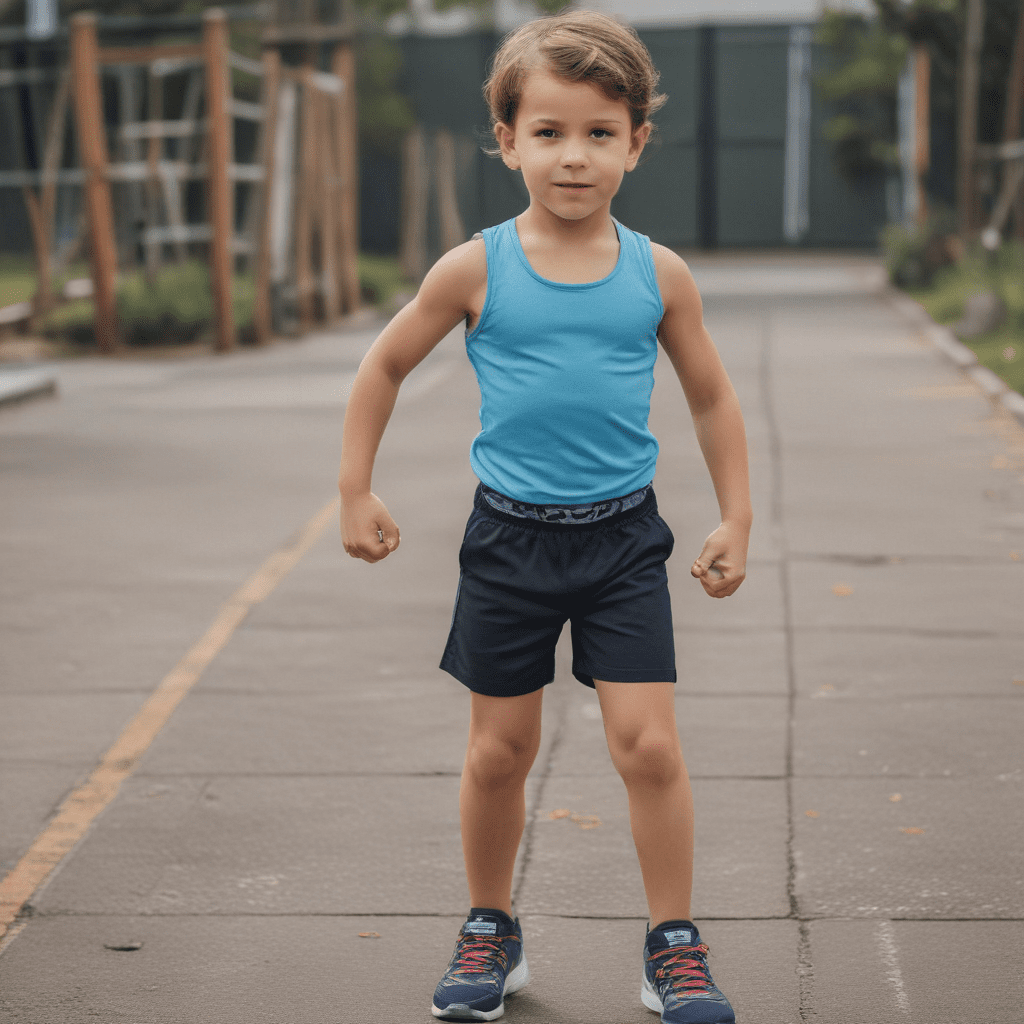
Fitness Challenges for Kids
Obesity and Physical Activity
In recent years, childhood obesity has become a growing concern worldwide. Physical inactivity is a significant contributing factor to this epidemic. According to the Centers for Disease Control and Prevention (CDC), only about one in three children aged 6-17 gets enough physical activity. This sedentary lifestyle can lead to numerous health problems, including obesity, heart disease, and type 2 diabetes.
Benefits of Physical Activity for Kids
Engaging in regular physical activity provides numerous benefits for children, both physically and mentally. Exercise helps strengthen muscles and bones, improves cardiovascular health, and reduces the risk of chronic diseases. It also promotes healthy weight management and boosts the immune system.
Moreover, physical activity has positive effects on mental health. It releases endorphins, which have mood-boosting effects, and can help reduce stress, anxiety, and depression. Exercise can also improve cognitive function, self-esteem, and sleep quality in children.
Types of Fitness Challenges
There are various types of fitness challenges that can engage kids and encourage them to stay active. These challenges can be tailored to different age groups and abilities, ranging from simple indoor activities to more structured outdoor programs. They may involve individual or team participation and can be designed to focus on specific fitness components such as endurance, strength, or flexibility.
Age-Appropriate Fitness Challenges
Choosing age-appropriate fitness challenges is crucial to ensure that the activities are enjoyable, safe, and beneficial for children. Younger kids may prefer games and playful activities like tag or hide-and-seek, while older children may be ready for more structured challenges like running, jumping, or swimming. It's important to consider the child's fitness level and interests when selecting activities.
Indoor Fitness Challenges
Indoor fitness challenges are a convenient way to engage children in physical activity, especially during inclement weather or limited access to outdoor spaces. These challenges can include activities such as jumping jacks, burpees, squats, and plank exercises. They can be done in the comfort of the living room or the basement, and can easily adjust to different fitness levels. Some popular indoor fitness challenges for kids include the "30-Day Burpee Challenge" or the "Jump Rope for Fitness Challenge."
Outdoor Fitness Challenges
Outdoor fitness challenges offer children the chance to explore and engage with the environment while staying active. These activities can include running, biking, hiking, or playing outdoor games like capture-the-flag. Nature-based fitness challenges, like the "Nature Scavenger Hunt Challenge," can make exercise more fun and educational. Incorporating outdoor activities promotes a love of nature, encourages exploration and discovery, and provides a change from indoor routines.
Family Fitness Challenges
Family fitness challenges are a wonderful opportunity to bring families together for physical activity. They can include activities that everyone can participate in, regardless of age or fitness level. These challenges could involve family walks or bike rides, backyard obstacle courses, or family sports competitions. By engaging the entire family in fitness, children learn the importance of physical activity and can create memories and bond over shared experiences. Family challenges also reinforce healthy lifestyle choices and promote a positive home environment for wellness.
School-Based Fitness Challenges
School-based fitness challenges are implemented within the school setting, often led by physical educators or teachers. They aim to promote physical activity and encourage healthy habits in children during school hours. These challenges can involve various activities, such as daily physical education classes, recess activities, or intramural sports programs. By incorporating physical activity into the school day, children are more likely to engage in exercise and develop lifelong fitness habits. School-based challenges can also foster teamwork, cooperation, and competition in a structured and supervised setting.
Tips for Implementing Fitness Challenges
Start gradually and set achievable goals: Don't overwhelm kids with intense challenges. Begin with small, achievable goals that can build confidence and motivation.
Choose activities that are fun and enjoyable: Kids are more likely to participate if they enjoy the activity. Select exercises and games that they find engaging.
Provide positive encouragement and praise: Celebrate kids' efforts and progress, no matter how small. Positive reinforcement can help them stay motivated.
Make it a social experience: Encourage children to participate with friends, siblings, or family. Social connections can make fitness more fun and engaging.
Be patient and consistent: It may take time for children to develop fitness habits. Stay patient and consistent in offering opportunities for physical activity.
Conclusion: The Importance of Fitness for Kids
Fitness plays an indispensable role in children's health, development, and overall well-being. Engaging in regular physical activity helps them build strong bodies, boost their physical and mental health, and promotes healthy lifestyle habits. Implementing age-appropriate and engaging fitness challenges can motivate kids to embrace an active lifestyle, setting the foundation for a healthier future. Parents, educators, and communities have a shared responsibility to encourage children to stay active, ensuring their physical, mental, and social well-being for years to come.
FAQ:
How much physical activity do kids need each day?
The recommended amount of daily physical activity for kids aged 6-17 years old is at least 60 minutes of moderate-to-vigorous activity. This can include activities like running, biking, swimming, or sports.
What are some signs that my child is not getting enough physical activity?
Some signs to watch for include excessive weight gain, fatigue, poor posture, difficulty sleeping, and decreased interest in physical activity.
How can I make fitness fun and engaging for my child?
Make physical activity a part of your child's daily routine, choose activities that they enjoy, provide positive encouragement and praise, and emphasize fun over competition.


